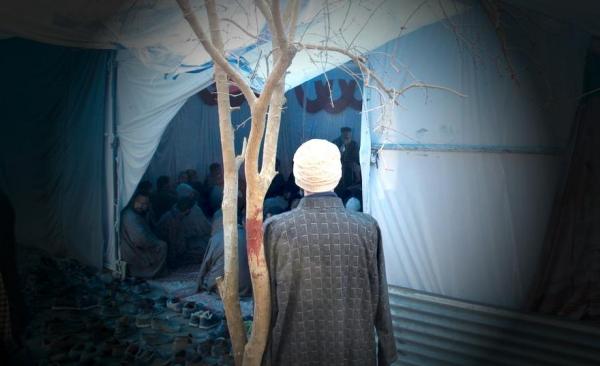Three days back the international magazine Lancet wrote an editorial raising alarm on the effects of the abrogation of Article 370 and 35A and the heavy deployment of armed forces in Kashmir. In response, the current President of the Indian Psychiatric Society, Dr Mrugesh Vaishnav has sent out a belligerent message.

In response this open letter from senior psychiatrist, Dr Anirudh Kala, from Ludhiana, to the President, IPS raises crucial questions about both the motive and orientation of the IPSA President’s stance. It points out that in response to a 340 word editorial by Lancet, Vaishnav wrote a 900 word response, of which two-thirds dealt with Pakistan and how bad things were there.
Dr Kala asks, “How can commenting about something be interference or intrusion into another country’s affairs? Also, if that is interference, why is the IPS president commenting on Pakistan’s health care? And if students and doctors are going to carry unpleasant memories of an editorial, what must the Kashmiris be carrying?
Dr. Kala also clarifies that, “I am no longer a member of IPS since I resigned some years back on the issue of IPS refusing to acknowledge at that time that homosexuality is not a disease to be treated. So, technically you would be within your rights to tell me this is none of my concern, this is a society matter. To which my sincere reply would be I am raising concerns as a fellow Indian psychiatrist about possibility of even more PTSD in Kashmir after August 5.
The entire letter penned by Dr Kala may be read here:
Dear Mrugesh,
I have seen your letter as President of the Indian Psychiatric Society (which is also signed by Dr. Vinay Kumar, the General Secretary) addressed to the Editor, Lancet in response to Editorial of two days back about health and human rights of Kashmiris after the recent restrictions in J&K.
Firstly it is revealing that you wrote a 900 words rejoinder to a 340 words editorial. Which would have been fine if you had not used more than two thirds of those words on Pakistan and how bad things are there, something which the editorial had not touched upon.
The editorial cites already high rates of PTSD quoted in various studies over the recent years( inspite of a better physical health parameters than rest of country) and points to UN High Commissioner for Human Rights’ report that 1253 people were blinded between 2016 and 2018 because of pellet guns. These are published facts researched by members of IPS, the psychiatrists of Kashmir. I am posting one such publication which reviews research on PTSD in children of Kashmir, both in orphanages and in general populace.
“I do think in a globalised world international medical community has a stake in health of the people anywhere. For example, ‘International Physicians for the Prevention of Nuclear War’ is a non-partisan federation of national medical groups in 63 countries, representing doctors, medical students and other health workers. It also has a very active Indian branch which exercises its rights to comment about nuclear flash points across the world. Similarly ‘Doctors Without Borders’ works in conflict zones in far flung poor countries in extremely trying conditions. We cannot justifiably tell doctors elsewhere that this is our problem, we got it, thank you. Because we havent’. I do not know of any efforts by our governments or by the IPS to have set up out- reach trauma clinics in Kashmir. Whatever efforts have been done are by local mental health professionals with limited resources at their disposal. You will understand if I do not count the IPS conferences held in sylvian surroundings of Kashmir as efforts to that end.
“How can commenting about something be interference or intrusion into another country’s affairs? Also, if that is interference, why is the IPS president commenting on Pakistan’s health care? And if students and doctors are going to carry unpleasant memories of an editorial, what must the Kashmiris be carrying?
“I am no longer a member of IPS since I resigned some years back on the issue of IPS refusing to acknowledge at that time that homosexuality is not a disease to be treated. So, technically you would be within your rights to tell me this is none of my concern, this is a society matter.
To which my sincere reply would be I am raising concerns as a fellow Indian psychiatrist about possibility of even more PTSD in Kashmir after August 5.
Dr. Anirudh Kala is a psychiatrist and author based in Ludhiana. He was a member of the Policy Group appointed by government of India which wrote the first ever Mental Health Policy for the country in 2014.A collection of short stories by him entitled ” Unsafe Asylum: Stories of Partition and Madness” was published by Speaking Tiger Books last year.
Related Articles
Government’s Decision on Jammu and Kashmir: A Long Leap into Unconstitutionality
Why do we protest? Mumbai citizens speak on the lockdown in Kashmir, Article 370
How the abrogation of Article 370 has unleashed the great Indian misogynistic troll